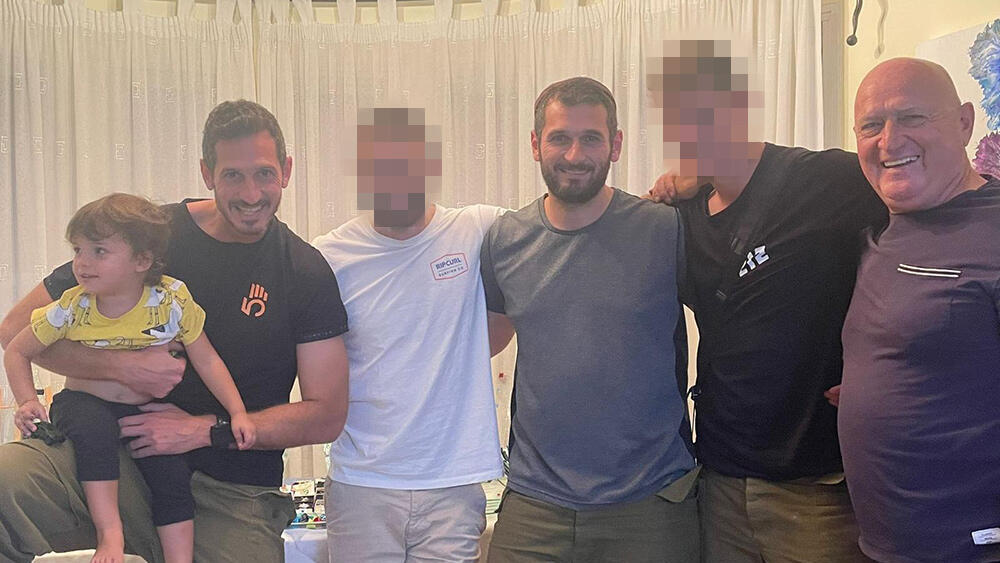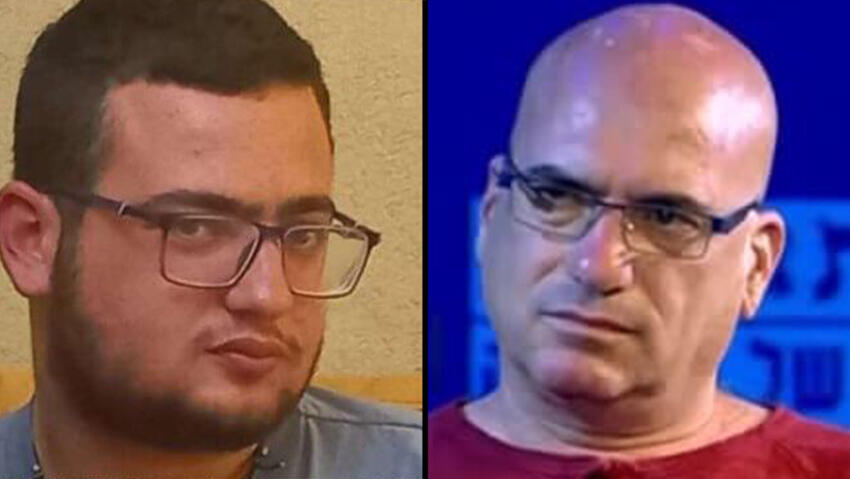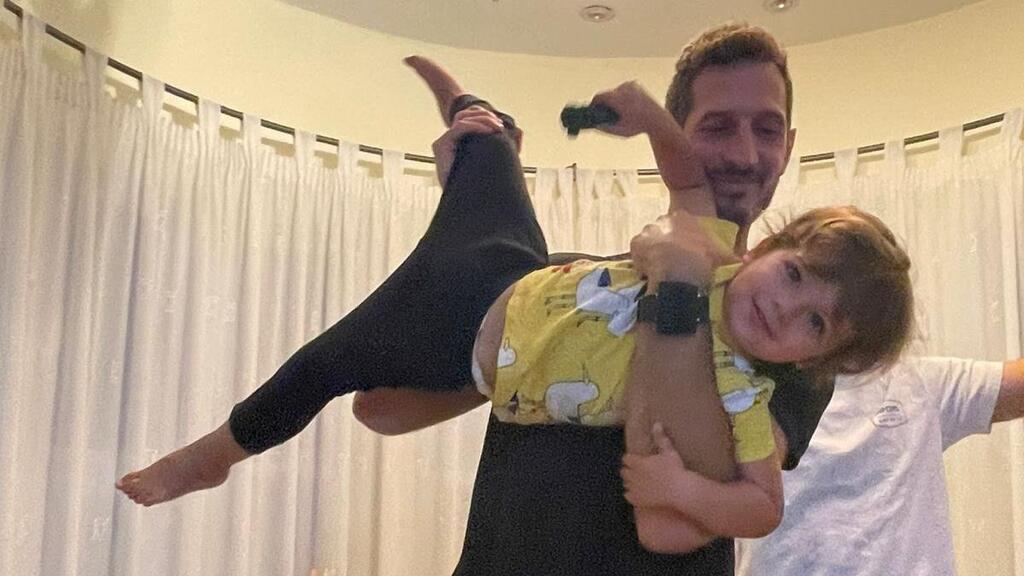On October 7, the Libstein boys were spread around the country and the world. Tal, 34 the oldest son was with his family in the center of the country; Or, 28 was in the north with his wife, expecting the birth of their son; R. 26 was on a trip to Thailand after his military service and ahead of the new university semester; and G, 20, was still in the middle of his training as a soldier in the naval commandos.
More stories:
They all heard the news of the massacre from their parents, including about the death of their father's cousin and close friend Ofir Libstein, who was head of the Sha'ar Hanegev regional council which borders Gaza.
"Our war began with grief mostly," Tal says. "We learned about Ofir from the media and also about his son, Nitzan, who was first described as missing before he was confirmed dead. Our father was busy organizing funerals. He has not slept in four months."
"I remember I was an emotional wreck, I just got back from Thailand and learned that two of my soldiers had been murdered at Nova," says R. "Driving to the base I was anxious. I called Or and told him that maybe we should not all show up for the reserves and that things were now complicated for our parents."
But Or convinced him this was the right thing to do. "We spoke about Mom and Dad and what they were going through, but ultimately we drew strength from them to reach the base. We agreed that there would always be someone at home with the parents, that the house would be full of people and that each of us would send them flowers every few days."
Thus, all four joined their combat units to fight the war.
"What is most characteristic of our parents and their education of us was teaching by example," R. explains. "They let us do anything, anytime, and in the end, we all follow the same path, because we know what they expect of us. We were those who felt that maybe we should act differently, for their sake. Maybe they were in uncertainty, or mistrust. But for them there was no question."
Tal agrees. "Even in extreme situations such as this one, after my father had lost someone very close to him, he never told any of us not to go to the service. There was never such a conversation. It never came up," he says. "We had to raise the matter between us because our father, our home, was grieving. And then, Or entered Gaza, then I did and then G., who is the youngest and we are not really used to him being a soldier, he too was deployed to the Strip."
This meant many conversations among the brothers. "Mostly they were about how we were doing and about keeping each other strong. I don't think any of us ever thought to stop. Our commitment to IDF service is unquestionable," Tal says. " I think each of us is a role model where he lives and works. Or and I are educators, R. is a commander whose troops look up to him. I know that there is no way I would not show up, even if some small voice inside raises some doubt. Its all about how we were raised by our parents."
"My wife went into labor last Friday, which was the first time all of us brothers were together at our parents' house, for dinner since the war began," Or says. "We thought about skipping the meal but hearing my father say the blessing was worth it. He told us this was the first time in four months that he was able to sleep. Even when each of us came out of Gaza for a break, we would make it home to see our parents, give them a break too after they sacrifice so much. It made all of us stronger as a family."
G., the baby in the family, knew it was his turn to be a soldier. "It was strange that suddenly all of us were in uniform, especially when I was the only one that was supposed to be in the service and they were all inside Gaza," he says. "It was hard. I thought about them all the time and wondered if they were in danger, or what was going on. But it pushed me more in training. It motivated me to carry on, I think. It made me want to prove myself. Every target practice, every exercise, took on a greater meaning because I understood what comes next. It helps to have brothers with that much experience, and I tried to get as much advice and as many tips as possible. I have so much to learn from them."
Or lost his close friend in the war. A friend that was like another brother to him. He has found it difficult to accept that loss. Now, since he was released from the reserves and is back in school, he says he understands that life goes on.
"No one is waiting for you. You have to catch up. This is one of the hardest things for me, knowing that people are still there fighting, that my friend Ron Efrimi was killed, that all that is going on and life cannot go on as usual," he says. "Our role is not only to follow the news but to understand how we devote our time to this major event," he adds.
"I can relate to the sense that now is the time to protect our home. Our national home and our family, and we have to keep each other strong and our parents, too. This takes on a powerful meaning for me and we are all trying to walk that path," Or says.
Tal says the four of them followed in the footsteps of those who came before them, who had fought for them. "Our grandfather, who came here and founded Kfar Neter, our parents who raised us on these values and now we are faced with a reality that there is no one else that can do the job. We are not even of the same generation, the four of us, but we see ourselves as leaders in our society and there is no one else that can fulfil that role. I think standing up and being counted is something we all take with us from home. Our vitality, our energy, our laughs are an integral part of it and we not only want to do our bit, but to lead others too," Tal concludes.




